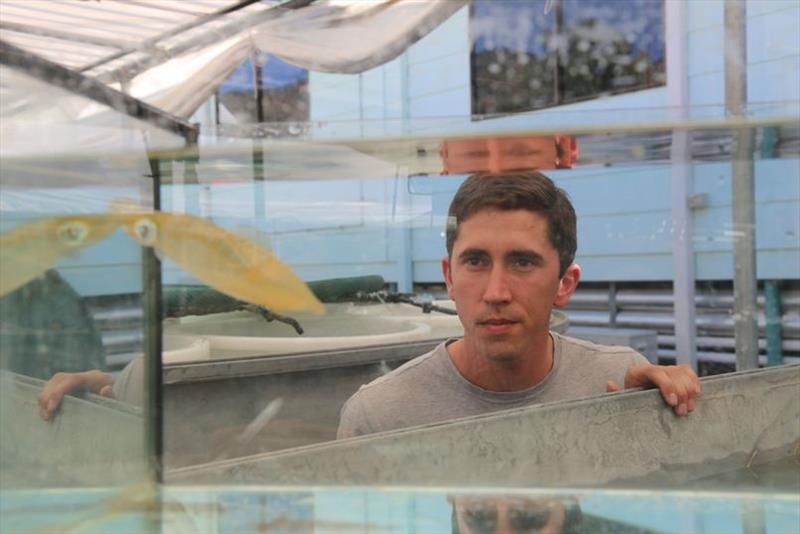
Squid could thrive under climate change
by coralcoe.org.au 18 Jun 2019 09:49 UTC

Squid are showing resilience to ocean acidification © Blake Spady
Squid will survive and may even flourish under even the worst-case ocean acidification scenarios, according to a new study published this week.
Dr Blake Spady, from the ARC Centre of Excellence for Coral Reef Studies (Coral CoE) at James Cook University (JCU), led the study. He said squid live on the edge of their environmental oxygen limitations due to their energy-taxing swimming technique. They were expected to fare badly with more carbon dioxide (CO2) in the water, which makes it more acidic.
"Their blood is highly sensitive to changes in acidity, so we expected that future ocean acidification would negatively affect their aerobic performance," said Dr Spady.
Atmospheric CO2 concentrations have increased from 280 parts per million (ppm) before the industrial revolution to more than 400 ppm today. Scientists project atmospheric CO2—and by extension CO2 in the oceans—may exceed 900 ppm by the end of this century unless current CO2 emissions are curtailed.
But when the team tested two-toned pygmy squid and bigfin reef squid at JCU's research aquarium, subjecting them to CO2 levels projected for the end of the century, they received a surprise.
"We found that these two species of tropical squid are unaffected in their aerobic performance and recovery after exhaustive exercise by the highest projected end-of-century CO2 levels," said Dr Spady.
He said it may be an even greater boost for the squid as some of their predators and prey have been shown to lose performance under predicted climate change scenarios.
"We think that squid have a high capacity to adapt to environmental changes due to their short lifespans, fast growth rates, large populations, and high rate of population increase," said Dr Spady.
He said the work is important because it gives a better understanding of how future ecosystems might look under elevated CO2 conditions.
"We are likely to see certain species as being well-suited to succeed in our rapidly changing oceans, and these species of squid may be among them."
"The thing that is emerging with most certainty is that it's going to be a very different world," he said.
The paper is out now: Spady B, Nay T, Rummer J, Munday P, Watson S (2019). Conservation Physiology. 'Aerobic performance of two tropical cephalopod species unaltered by prolonged exposure to projected future carbon dioxide levels'. DOI: 10.1093/conphys/coz024